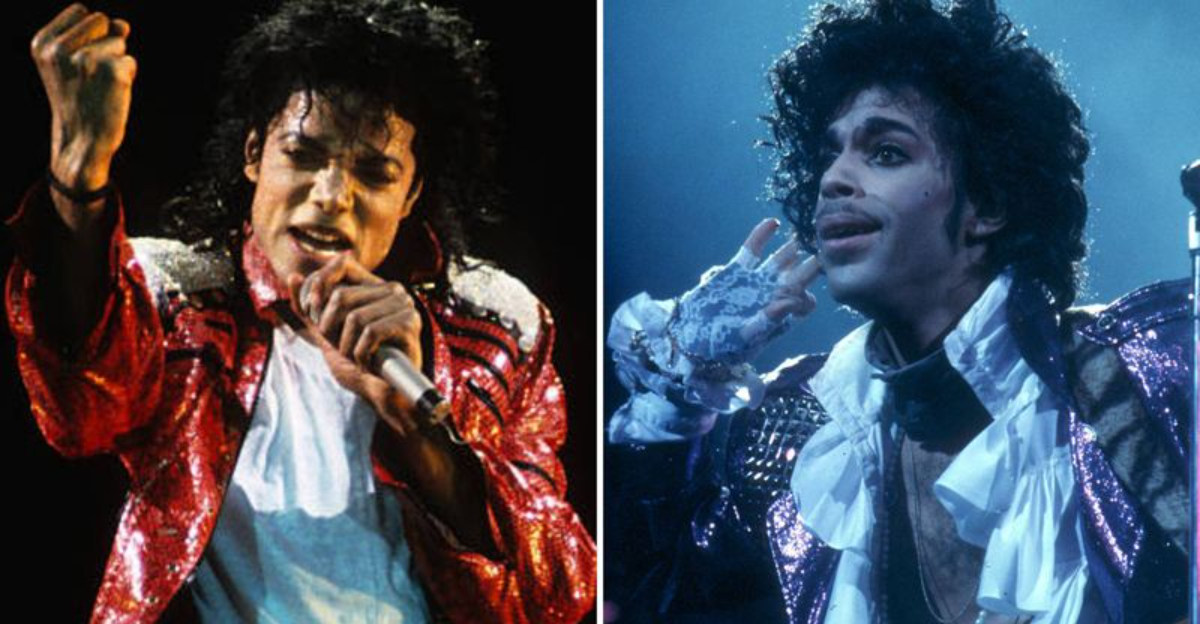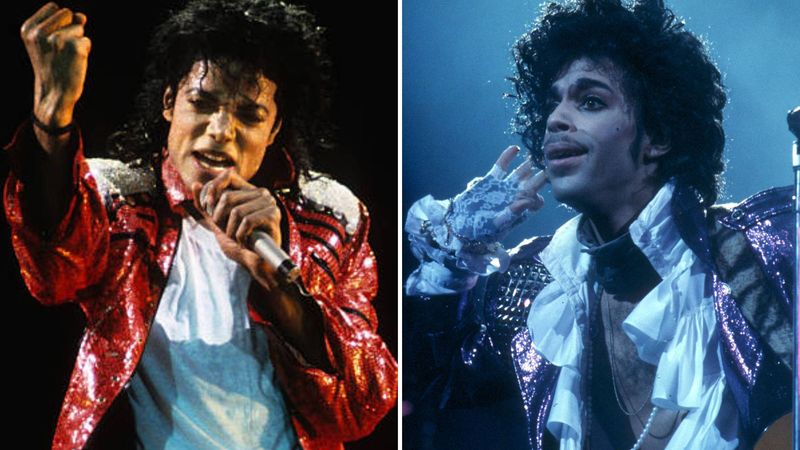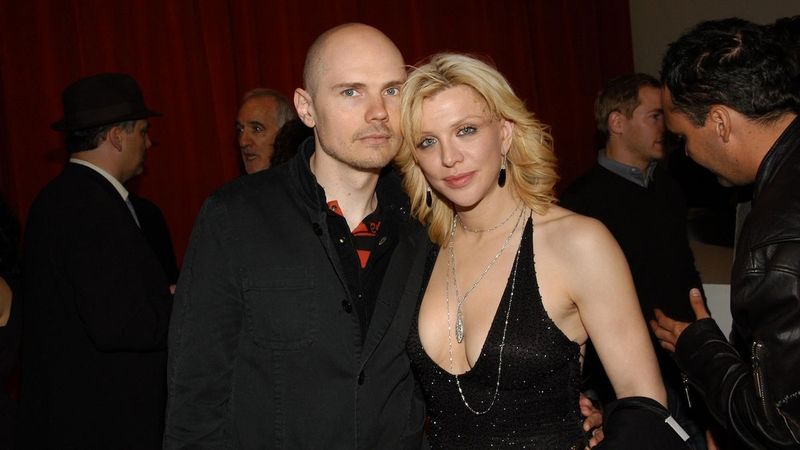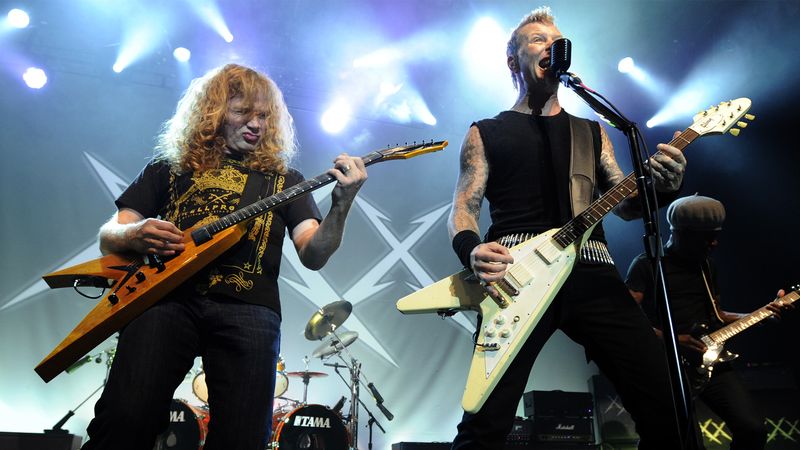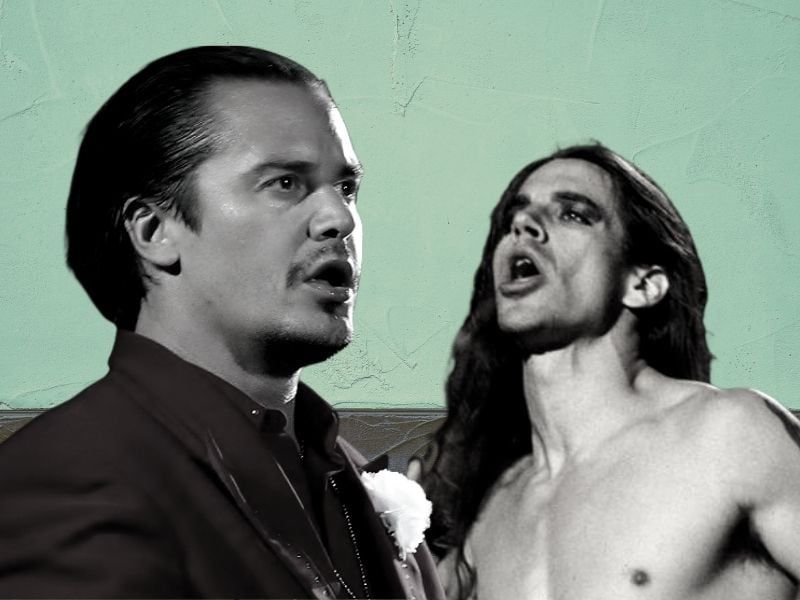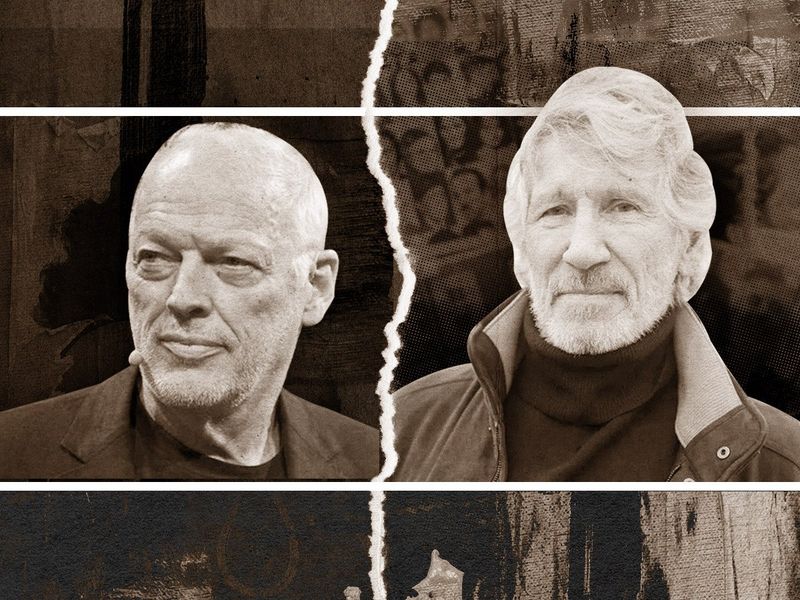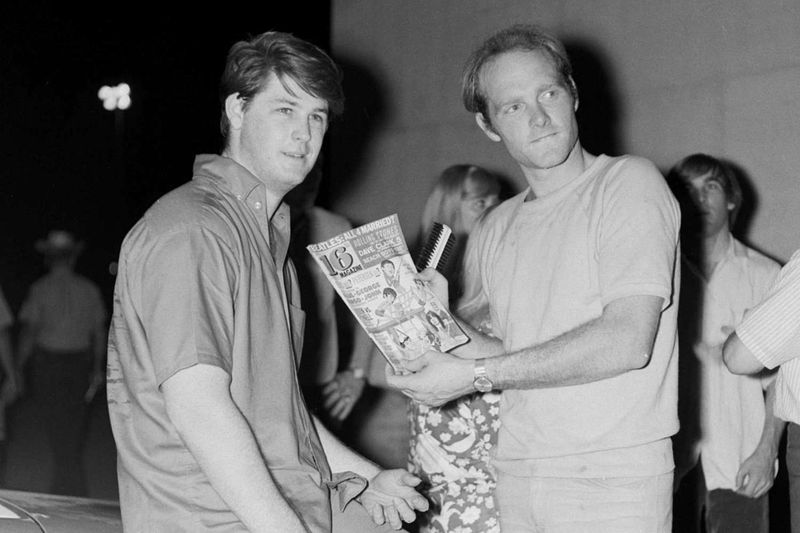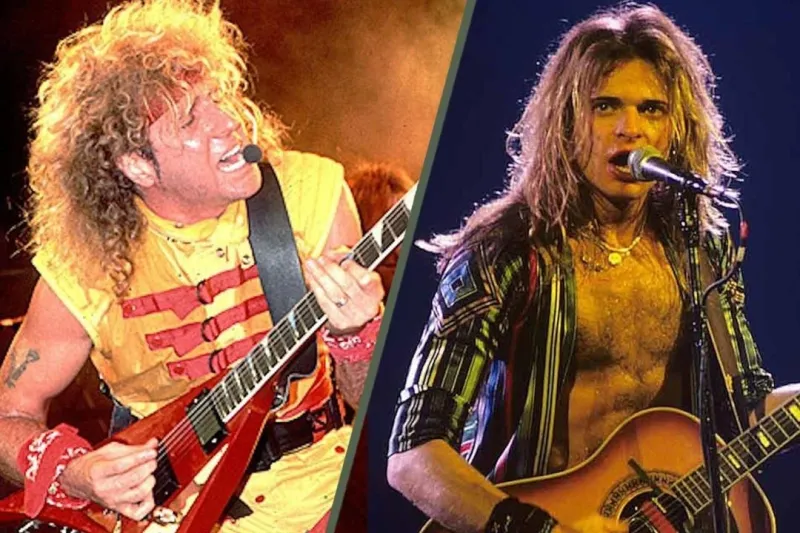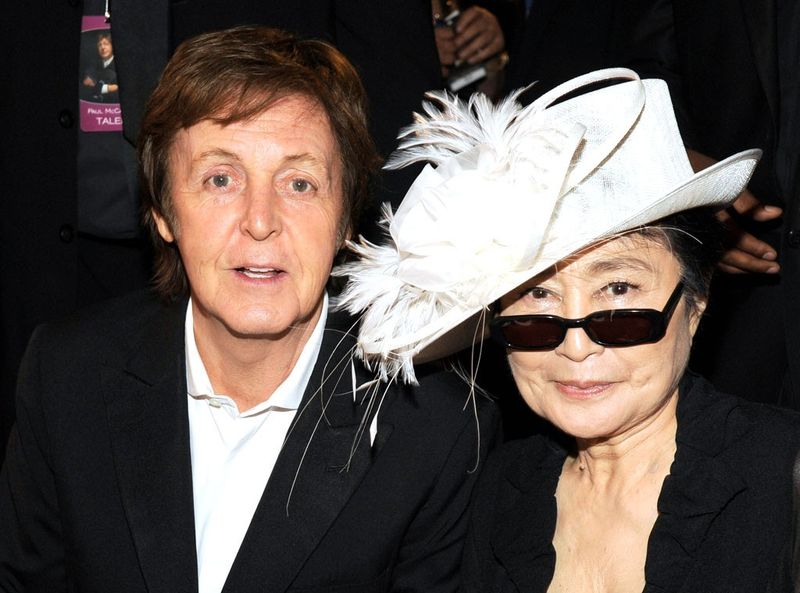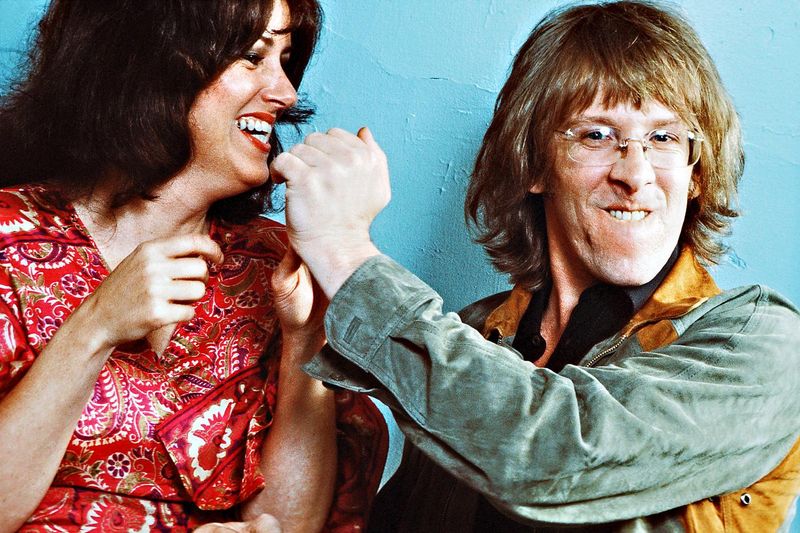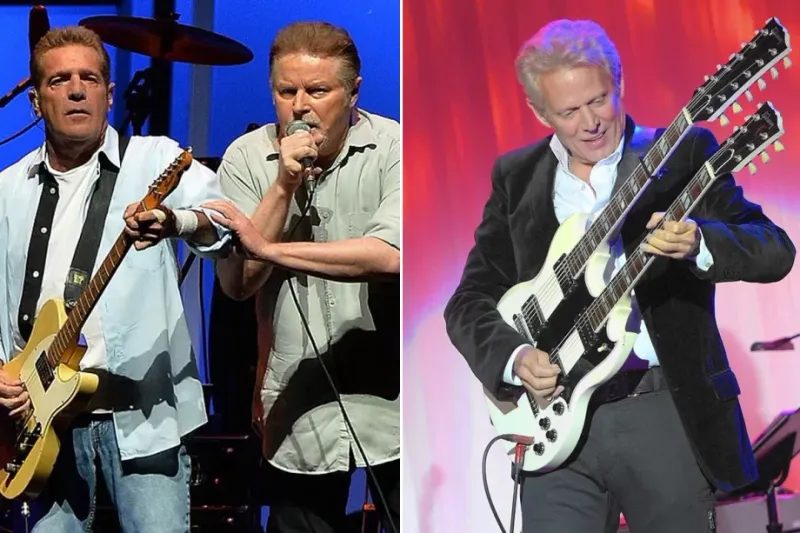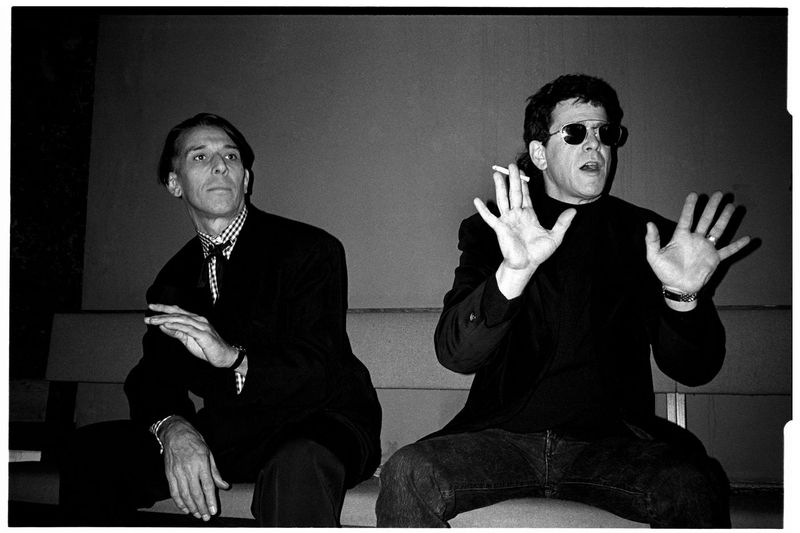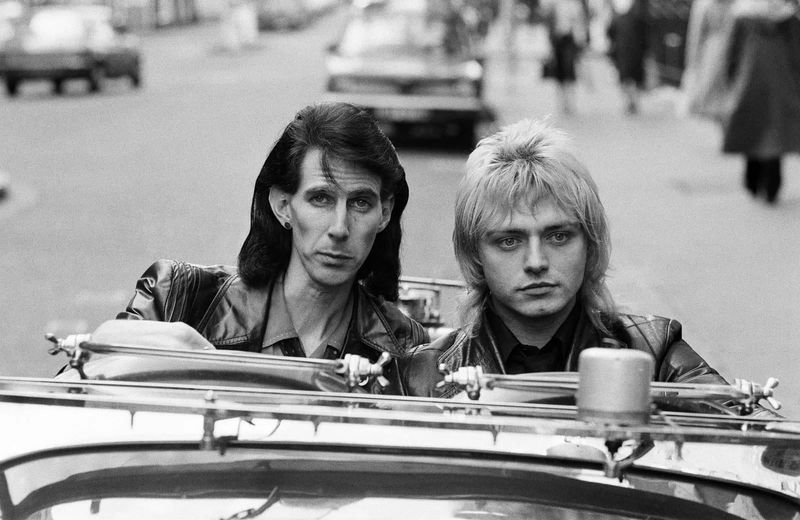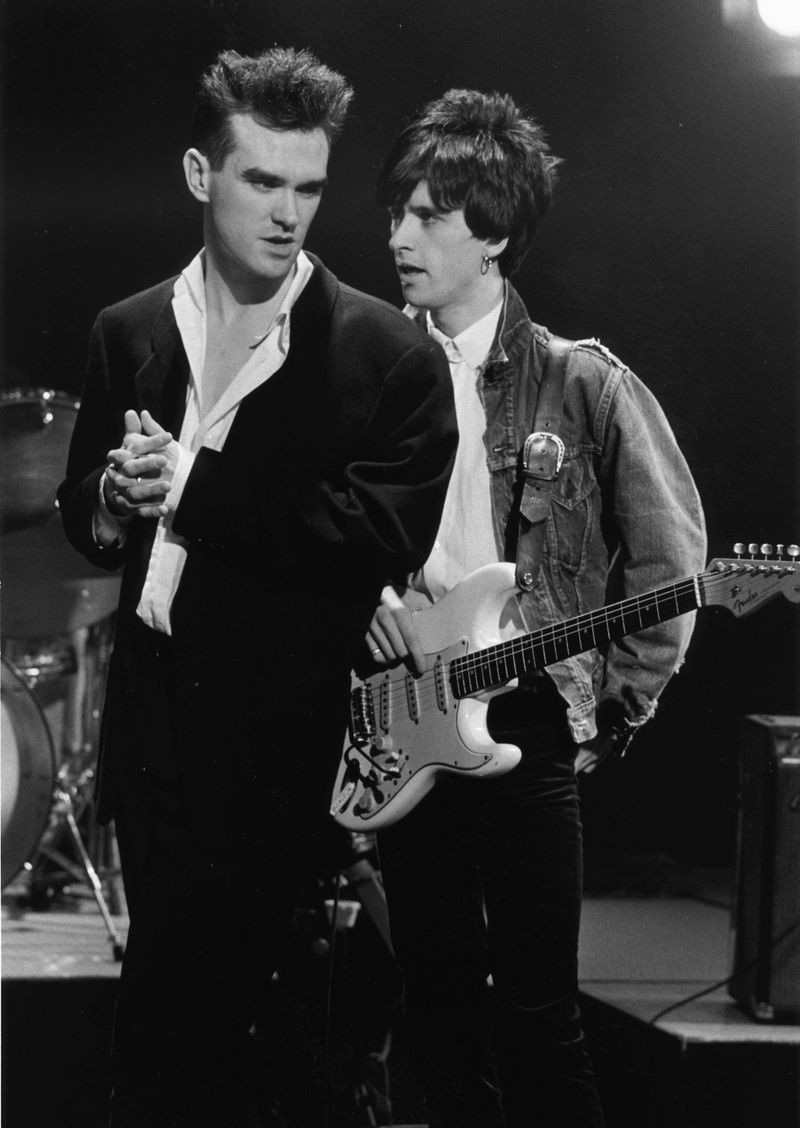The 1980s music scene was a battlefield where egos clashed as fiercely as the synthesizers and guitars. Behind the neon lights and MTV glamour, artists waged personal wars that shaped the sounds we still love today. These forgotten feuds reveal the raw human drama powering the decade’s greatest hits.
1. Axl Rose vs. Music Critics
Guns N’ Roses frontman Axl Rose didn’t just save his venom for rival bands. Throughout the late ’80s, he nursed a growing hatred for music journalists who criticized his band.
The feud exploded when Rose called out SPIN magazine’s Bob Guccione Jr. by name in 1991’s “Get in the Ring.” Guccione responded by challenging Rose to an actual boxing match, though the fight never materialized.
2. Prince vs. Michael Jackson’s Ping-Pong Showdown
Purple royalty faced off against the King of Pop in a table tennis match that became industry legend. After defeating Jackson, Prince allegedly taunted: “He played like Helen Keller.”
Their rivalry extended beyond sports into music, with each artist scheduling album releases to sabotage the other’s chart positions. Jackson reportedly kept a dartboard with Prince’s face in his home studio.
3. Billy Corgan’s Ferry Revenge
Long before Courtney Love married Kurt Cobain, she dated Smashing Pumpkins mastermind Billy Corgan. Their romance crashed when Corgan, annoyed after a festival performance, refused to pay for Love’s plane ticket home.
Instead, he forced her to take a ferry—where she fatefully met Cobain. The slight festered into a decades-long grudge, with Corgan later accusing Love of stealing his songs for Hole’s album.
4. Metallica’s Mustaine Problem
When Metallica fired guitarist Dave Mustaine in 1983, they created their greatest rival. Mustaine formed Megadeth specifically to outplay and outperform his former bandmates.
The thrash titans’ rivalry defined metal throughout the decade. Mustaine obsessively tracked Metallica’s success, once lamenting in an interview: “No matter what I do, I’ll always be the guy who got kicked out of Metallica.” Their competing albums pushed both bands to new technical heights.
5. The Dance Move Theft Accusation
Red Hot Chili Peppers’ Anthony Kiedis couldn’t stand seeing Faith No More’s Mike Patton performing. Why? He believed Patton had stolen his signature stage moves and vocal style.
The accusation seemed petty on the surface, but it reflected deeper tensions as both bands pioneered similar funk-metal fusion sounds. Faith No More members fired back, claiming the Chili Peppers were threatened by their rising popularity.
6. Pink Floyd’s Ownership Battle
Roger Waters believed Pink Floyd died when he left in 1985. David Gilmour disagreed.
Waters sued his former bandmates to prevent them from using the Pink Floyd name, calling their continued existence “a sham.” Gilmour responded by creating the massively successful album “A Momentary Lapse of Reason” without Waters.
The legal battle became so vicious that band members communicated exclusively through lawyers for years, destroying friendships that dated back to childhood.
7. Beach Boys’ Courtroom Harmony
The sunny California sound hid a stormy relationship between cousins Brian Wilson and Mike Love. Their 1980s feud culminated in Love suing Wilson over songwriting credits for 35 Beach Boys classics.
Love publicly criticized Wilson’s experimental direction, allegedly dismissing masterpiece “Pet Sounds” with the question: “Who’s gonna hear this shit? The ears of a dog?”
The bitter legal battles continued through multiple decades, permanently fracturing the band’s family dynamic.
8. Van Halen’s Lead Singer Swap
When David Lee Roth exited Van Halen in 1985, Eddie Van Halen didn’t mourn—he celebrated by hiring Sammy Hagar. The band’s reinvention sparked a war of words that entertained fans throughout the decade.
Roth mockingly called the new lineup “Van Hagar,” while Eddie dismissed Roth’s solo career as circus entertainment. Their public sniping masked a deeper creative disagreement about Van Halen’s musical direction and legacy.
9. The Beatles’ Posthumous Tension
John Lennon’s 1980 murder didn’t end his feud with Paul McCartney—it transformed it. Throughout the decade, McCartney struggled with how to honor Lennon while defending his own contributions to Beatles history.
Yoko Ono became McCartney’s primary antagonist, battling over songwriting credits and Beatles business decisions. When McCartney requested the “Lennon-McCartney” credit be reversed on certain songs, Ono publicly refused, keeping the conflict alive.
10. Jefferson Starship’s Crash Landing
Grace Slick and Paul Kantner’s romantic relationship ended in the 1970s, but their professional feud defined Jefferson Starship’s turbulent 1980s. The former lovers battled over the band’s increasingly commercial direction.
When Slick jumped ship to Starship (minus the Jefferson) for the massive hit “We Built This City,” Kantner sued over the name. The courtroom drama became so intense that bandmates testified against each other, destroying decades of friendship.
11. The Eagles’ Seven-Year Silence
“We’ll reunite when hell freezes over.” Don Henley’s famous quote summarized his relationship with Glenn Frey after the Eagles’ 1980 implosion.
The founding members refused to speak throughout the Reagan years, each blaming the other for the band’s demise. Hotel California’s harmony-rich creators couldn’t even be in the same room without lawyers present.
Their mutual disdain was so complete that when offered millions for reunion tours, both consistently refused until 1994.
12. Velvet Underground’s Lingering Resentment
Lou Reed fired John Cale from the Velvet Underground in 1968, but their mutual animosity peaked during the 1980s. Reed repeatedly blocked reunion attempts, once stating he’d “rather open a hardware store” than work with Cale again.
The feud intensified when both released competing memoirs about their Velvet Underground days, each minimizing the other’s contributions. Their reconciliation for 1990’s Andy Warhol tribute album shocked the music world after decades of bitter silence.
13. The Cars’ Engine Trouble
Frontmen Ric Ocasek and Benjamin Orr maintained a professional façade, but The Cars were privately breaking down throughout the ’80s. Childhood friends turned bitter rivals, they competed for lead vocal duties while presenting a united front to fans.
Ocasek, as primary songwriter, increasingly pushed Orr away from microphones despite Orr having sung their biggest hit “Drive.” Band members later revealed the two barely spoke offstage during their final tour, communicating through intermediaries.
14. The Smiths’ Creative Divorce
The Smiths’ 1987 implosion unleashed one of music’s most eloquent feuds. Guitarist Johnny Marr quit, exhausted by Morrissey’s demanding personality and refusal to tour certain venues.
Morrissey retaliated through press interviews, portraying Marr as a betrayer who abandoned their artistic vision. Their war of words grew increasingly bitter as solo careers diverged.
The feud’s intensity ensured The Smiths would never reunite despite massive financial incentives—a rarity in an era of nostalgic cash-grab comebacks.
